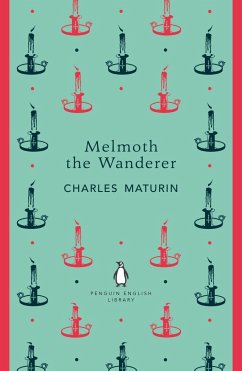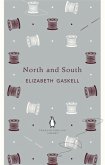The Penguin English Library Edition of Melmoth the Wanderer by Charles Maturin
'My hour is come ... the clock of eternity is about to strike, but its knell must be unheard by mortal ears!'
This violent, profound, baroque and blackly humorous novel is the story of Melmoth, who has sold his soul in exchange for immortality in a satanic bargain, and now preys on the helpless in their darkest moments, offering to ease their suffering if they will take his place and release him from his centuries of tortured wanderings. Melmoth the Wanderer (1820) blended Gothic fiction and psychological realism to create a work of hallucinatory power.
The Penguin English Library - beautiful editions of the best fiction in English, from the eighteenth century to the Second World War.
Hinweis: Dieser Artikel kann nur an eine deutsche Lieferadresse ausgeliefert werden.
'My hour is come ... the clock of eternity is about to strike, but its knell must be unheard by mortal ears!'
This violent, profound, baroque and blackly humorous novel is the story of Melmoth, who has sold his soul in exchange for immortality in a satanic bargain, and now preys on the helpless in their darkest moments, offering to ease their suffering if they will take his place and release him from his centuries of tortured wanderings. Melmoth the Wanderer (1820) blended Gothic fiction and psychological realism to create a work of hallucinatory power.
The Penguin English Library - beautiful editions of the best fiction in English, from the eighteenth century to the Second World War.
Hinweis: Dieser Artikel kann nur an eine deutsche Lieferadresse ausgeliefert werden.








